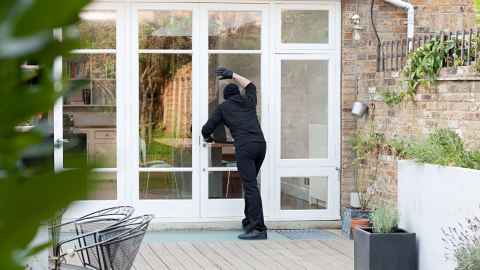Study explores Airbnb and crime in Auckland suburbs
30 October 2023
A study examining house prices, Airbnb prevalence and crime has found that the more Airbnbs a suburb has, the more property-related crime there is.

More Airbnbs in neighbourhoods contribute to an uptick in property-related crime and lower house prices, according to a University of Auckland study.
In previous housing studies, Airbnb has been identified as a driver of real estate demand, resulting in a positive impact on property rents and prices. However, Business School academics William Cheung and Edward Yiu have found that tourist accommodation in a neighbourhood exacerbates the pre-existing negative impact of crime on house prices, leading to a decrease in property values.
Therefore, says Dr Cheung, Airbnb rentals exhibit a dual effect, with both positive and negative consequences on neighbouring rents and property prices.
Higher-density neighbourhoods, such as those that feature apartments, are more affected by Airbnb property-related crime and reduced property prices compared to areas with single-family houses, says Cheung.
"In our current article, we aim to explain how the number of Airbnb listings in an area affects the impact of crime rates on house prices. We find that a higher concentration of Airbnb listings in a neighbourhood often leads to an increase in property-related crimes, which, in turn, can lower property values, especially in apartment-type housing."
The popularity of Airbnb in a community replaces long-term owner occupiers with short-term occupants, which can erode the anti-crime capability of the community, say the authors in their article, ‘The paradox of Airbnb crime and house prices: a reconciliation’.

Cheung says apartment-type housing estates are particularly vulnerable due to mutual ownership of common spaces and amenities.
"With the growth of peer-to-peer online accommodation services, such as Airbnb, safety options such as coded gates no longer provide the same levels of security."
In their study, Cheung and Yiu utilised census data for the Auckland region. The researchers used Auckland as a case study because the city shares many similarities with global tourism cities such as Melbourne, New York, London and Paris.
"The problem of property crimes such as vandalism and theft is a particular concern in all of these cities," says Cheung.
The researchers note that a better understanding of how Airbnb density interacts with criminal activities and house prices in neighbourhoods can help with the development of effective policies, including zoning to regulate the short-term accommodation market in global tourism cities.
The article features in the August 2023 edition of Tourism Economics
Media contact
Sophie Boladeras I Media adviser
M: 022 4600 388
E: sophie.boladeras@auckland.ac.nz